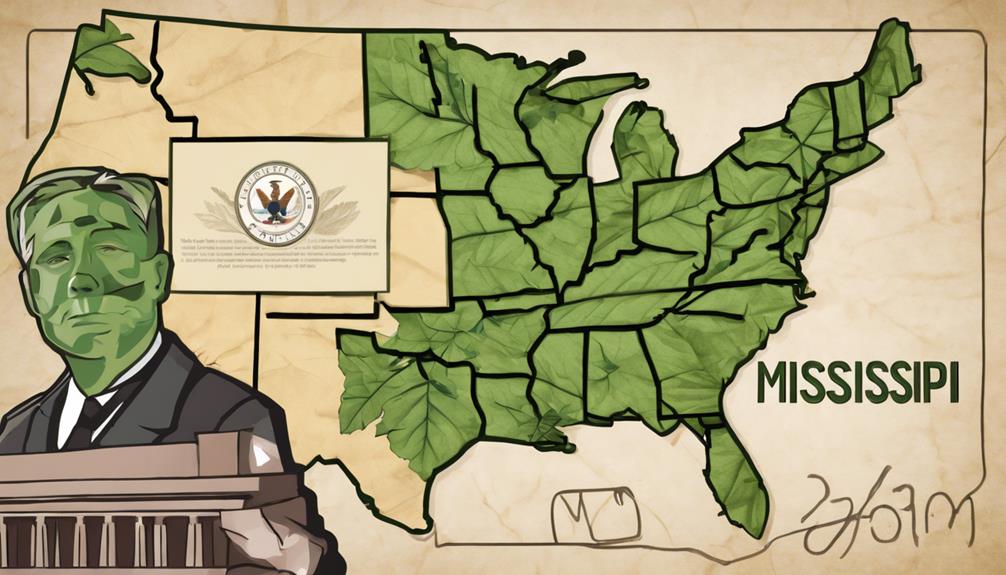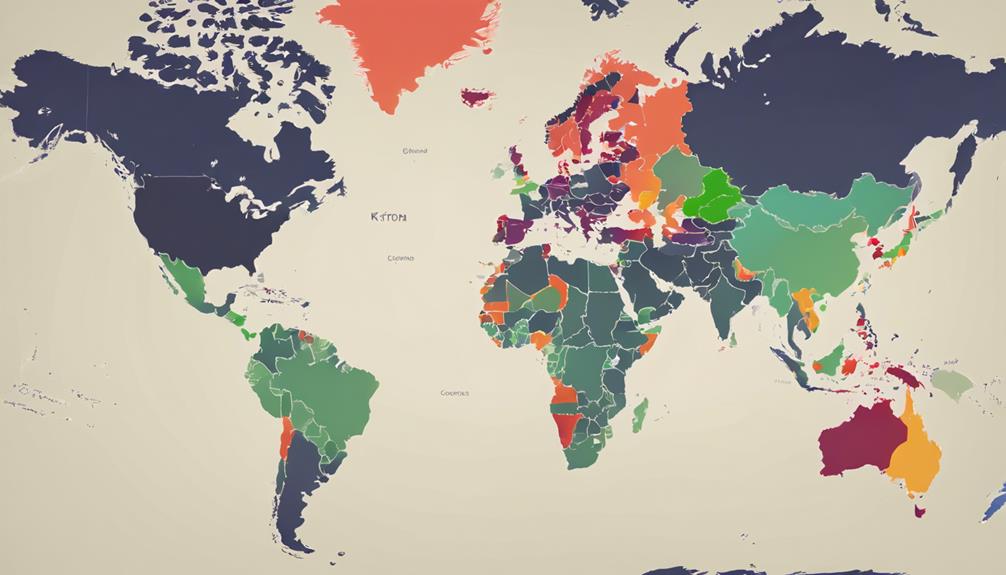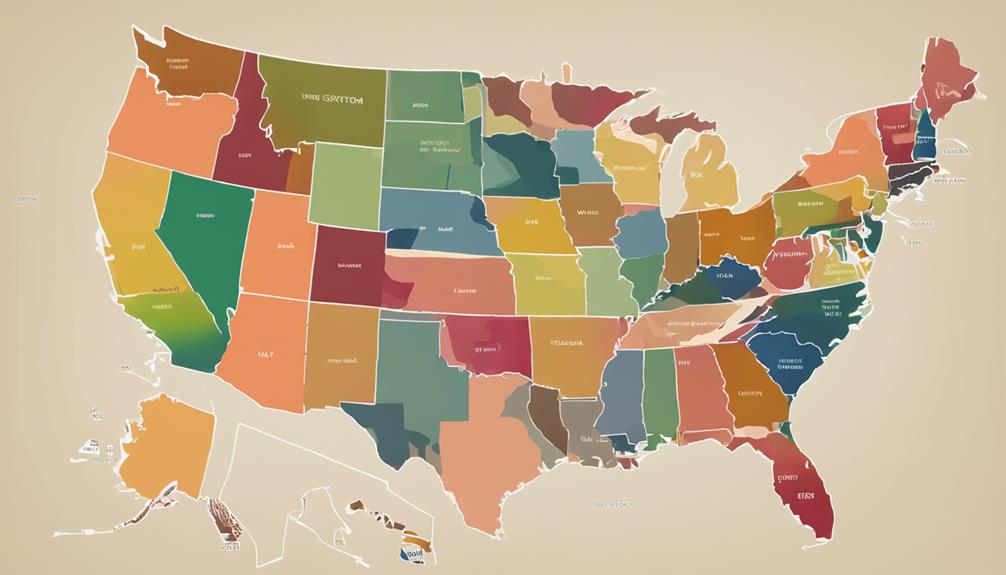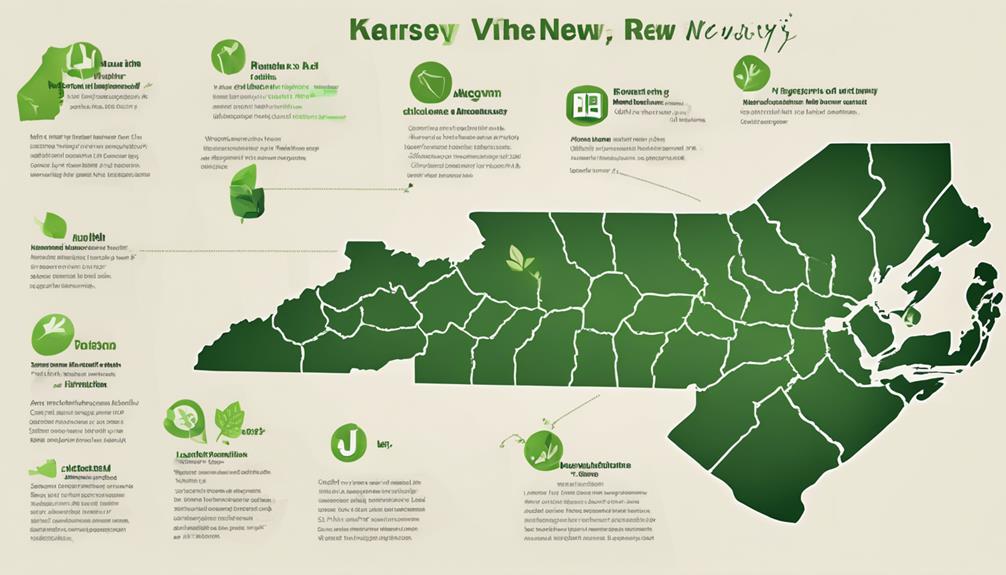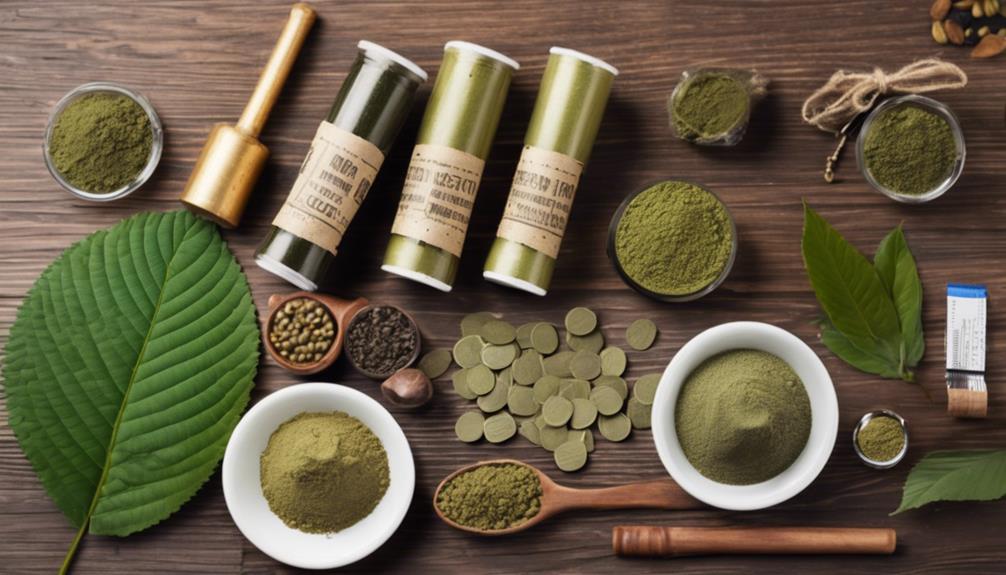Deprecated: mb_convert_encoding(): Handling HTML entities via mbstring is deprecated; use htmlspecialchars, htmlentities, or mb_encode_numericentity/mb_decode_numericentity instead in /home/users/kratomfiles/www/kratomfiles.com/wp-content/plugins/quick-adsense-reloaded/includes/template-functions.php on line 3544
You may not be aware that kratom legality in Mississippi is currently a topic of debate and uncertainty. As you navigate through the legal landscape of kratom in this state, you'll encounter a web of differing regulations that can be confusing to understand and follow. Stay tuned to discover the latest developments and controversies surrounding the use of kratom in Mississippi, as the legal status continues to evolve amidst increasing calls for stricter regulations.
Key Takeaways
- Mississippi allows kratom possession and consumption statewide.
- Some local jurisdictions in Mississippi have bans on kratom sale and use.
- Proposed statewide ban by Rep. Lee Yancey reflects growing safety concerns.
- Federal recommendation to classify kratom as a Schedule I substance.
- Ongoing public debate on benefits and risks of kratom in Mississippi.
Current Legal Status of Kratom in Mississippi
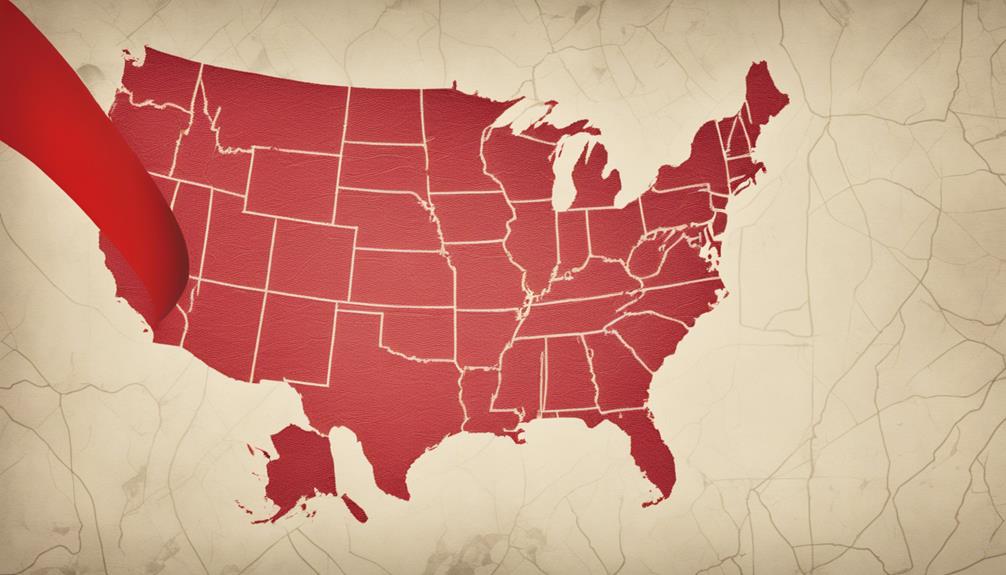
In Mississippi, the current legal status of kratom allows for its possession and consumption statewide, although various local jurisdictions have independently enacted bans on its sale and use. This means that while kratom remains legal at the state level, individuals residing in certain cities or counties may face restrictions on obtaining or using this herbal supplement. The patchwork of regulations across Mississippi has created a complex landscape for kratom users, where legality can vary depending on where you are located within the state.
Despite the bans in some areas, the overall legal framework in Mississippi still permits the possession and consumption of kratom. This situation has led to ongoing debates and discussions regarding the benefits and risks associated with kratom, with stakeholders on both sides advocating for their positions. As a resident of Mississippi, it is important to stay informed about the evolving legal status of kratom in your specific locality to guarantee compliance with relevant regulations and restrictions.
Proposed Ban on Kratom in Mississippi
Rep. Lee Yancey's initiative to introduce legislation banning kratom in Mississippi is a significant development that reflects growing concerns over the herb's safety. With multiple cities and counties in Mississippi already imposing bans on kratom, the proposed statewide prohibition seeks to further regulate its usage. The consideration of classifying kratom as a Schedule I substance underscores the contentious debate surrounding its benefits and potential risks.
Legal Status Update
Considering the safety concerns and associated risks, the proposed ban on kratom in Mississippi is gaining momentum. Mississippi lawmakers, led by Rep. Lee Yancey, are pushing for legislation to outlaw kratom in the state. This move aligns with the trend in other regions, such as Alabama, where kratom has already been banned. The debate on kratom's legal status continues, with the federal government even recommending it for Schedule I status due to its potential for abuse. Advocates and opponents offer differing perspectives on the benefits and risks of kratom, adding complexity to the discussion. Below is a table summarizing key points regarding the proposed ban on kratom in Mississippi:
| Key Points | Details | Status |
|---|---|---|
| Legislation Proposal | Ban on kratom in Mississippi | Pending |
| Primary Sponsor | Rep. Lee Yancey | Active |
| Federal Recommendation | Kratom for Schedule I status | Pending |
| Comparison to Other States | Alabama has already banned kratom | Reference |
| Public Debate | Advocates and opponents present views | Ongoing |
Potential Impacts Explained
With the proposed ban on kratom in Mississippi gaining traction, the focus shifts towards understanding the potential impacts of such a regulatory measure on public health and safety.
- The ban on kratom is intended to address safety concerns and potential risks associated with its use.
- Advocates highlight the need for regulation due to reported adverse incidents and overdoses linked to kratom consumption.
- Aligning Mississippi's legislation with other states that have banned kratom is a goal of the proposed ban.
- Public hearings are being conducted to evaluate the implications of a statewide ban on kratom and its effects on public health.
- Lawmakers are urged to review scientific evidence regarding the benefits and risks of kratom before implementing the ban.
Arguments for Kratom Legalization in Mississippi

Advocates for Kratom legalization in Mississippi highlight the potential benefits of this herbal drug in pain management as a less addictive alternative to opioids. They argue that Kratom's analgesic properties, supported by studies from reputable institutions like the National Institutes of Health (NIH) and the National Institute on Drug Abuse, make it a viable option for individuals suffering from chronic pain. Advocates stress the need for legislation that allows for responsible use of Kratom, emphasizing the importance of purity and proper dosing to maximize its therapeutic effects.
Research indicating that Kratom-related deaths often involve the presence of other substances suggests a more nuanced perspective on its safety profile. Proponents of Kratom legalization view it as a safer option compared to highly addictive drugs such as heroin, fentanyl, or morphine. By advocating for the responsible integration of Kratom into pain management practices, supporters believe that individuals can benefit from its potential without the risks associated with traditional opioids.
Arguments Against Kratom in Mississippi
Opponents of Kratom in Mississippi argue that the substance raises significant health concerns, is susceptible to abuse, and lacks proper safety regulations. The belief that Kratom is as addictive as opiates, along with reported cases of addiction and fatalities, has fueled the push against its legalization. Mississippi lawmakers and medical associations are adamant about the need to address these issues to safeguard public health and prevent further harm.
Health Concerns Raised
Amid rising concerns about safety and potential risks, a government report in 2019 linked kratom to 91 overdose deaths in 27 states, prompting discussions on banning kratom in Mississippi. Physicians are advocating for this ban due to the risks associated with kratom use, which they believe outweigh its benefits. Most kratom-related deaths involved co-usage with other drugs like heroin or fentanyl, indicating potential risks of combining substances. Advocates suggest that kratom overdoses are often a result of contamination with other substances, highlighting safety issues that need to be addressed. The conflicting views on the benefits and risks of kratom contribute to the ongoing debate surrounding its legality in Mississippi.
- Government report linked kratom to 91 overdose deaths in 27 states.
- Kratom-related deaths often involved co-usage with other drugs.
- Physicians advocate for banning kratom due to risks outweighing benefits.
- Advocates suggest overdoses result from contamination, raising safety concerns.
- Conflicting views on kratom's benefits and risks fuel the ongoing debate.
Potential for Abuse
With its opioid-like effects on the brain, kratom is believed to pose a high risk of abuse and addiction, as evidenced by reported cases in Mississippi. The State Medical Association, along with law enforcement agencies, express concerns about the drug's addictive nature. Instances of extreme addiction and even deaths related to kratom use have raised alarms within the state. Mississippi House Republican Lee Yancey has compared kratom's addictiveness to that of opiates, further highlighting the potential for abuse. This concern has led to the banning of kratom in 13 cities and 28 counties across the state. The accumulating evidence of kratom's abuse potential underscores the need for careful consideration of its legal status in Mississippi.
Safety Regulations Needed
Given the increasing concerns surrounding kratom's potential for abuse and addiction in Mississippi, the call for safety regulations to address these risks has gained significant traction among lawmakers and medical professionals. As Mississippi grapples with the herbal supplement's growing popularity, several key points are driving the push for safety regulations:
- Mississippi lawmakers argue for regulations due to reported extreme addiction and deaths associated with kratom.
- The State Medical Association opposes kratom legalization, citing addiction risks and potential dangers.
- Mississippi House Republican Lee Yancey compares kratom's addictiveness to opioids, supporting the need for stricter regulations.
- 13 cities and 28 counties in Mississippi have already banned kratom, highlighting the urgency for safety measures.
- Advocates stress the importance of evidence-based decisions to secure safe kratom use and prevent harm.
Impact of Kratom Bans in Other States
Across various states, the bans on kratom have sparked contentious debates regarding the substance's risks and benefits, leading to a complex regulatory landscape. States like Alabama that have banned kratom cite concerns about drug abuse, potential adverse effects, and the risk of addiction. The American Kratom Association and other advocacy groups have been vocal in challenging these bans, advocating for a consistent national approach to kratom regulation to avoid discrepancies and enforcement challenges.
The bans in other states have triggered legal battles and public discussions on whether the benefits of kratom outweigh the perceived risks. Some states have opted for strict regulations, while others have banned kratom altogether. Lawmakers in Mississippi are closely observing the impact of these bans in other states to inform their decision-making process on kratom legislation. This serves as a reference point for understanding the potential consequences of implementing similar measures in Mississippi.
Public Opinion on Kratom in Mississippi

Observing the divided public opinion on kratom in Mississippi, it is evident that advocates and opponents hold contrasting views on its benefits and risks.
- Some Mississippi residents advocate for kratom, highlighting its potential benefits in managing pain and aiding with addiction withdrawal symptoms.
- Advocates emphasize the importance of responsible and pure kratom use to minimize potential risks associated with its consumption.
- Certain individuals consider kratom a safer alternative to traditional opioids like heroin, fentanyl, or morphine, as it offers pain relief without the addictive properties of these substances.
- On the other hand, Mississippi House Republican Lee Yancey strongly opposes kratom, likening its addictive nature to that of opiates and associating it with extreme addiction cases and deaths.
- The varying public opinions on kratom in Mississippi are reflected in the fact that 13 cities and 28 counties in the state have already implemented bans on its use, showcasing the diverse perspectives and regulations surrounding this substance.
What Are the Laws Surrounding Kratom in Mississippi?
The kratom legality in Minnesota is a bit unclear as of now. In 2019, there was a bill proposed to make kratom a Schedule I substance, but it didn’t pass. However, it’s still legal for people over 18 to purchase and use kratom in the state.
Future of Kratom Regulation in Mississippi
The ongoing discussions surrounding the future regulation of kratom in Mississippi are currently focused on evaluating the scientific evidence regarding its potential benefits and risks to public health. Lawmakers in Mississippi are actively engaging in public hearings to determine the best course of action for kratom regulation in the state. Advocates are pushing for a statewide ban on kratom to streamline the existing patchwork of regulations. This move aims to establish a clear and consistent approach to kratom use across Mississippi. At the heart of the debate lies the necessity for decision-makers to rely on scientific data when examining the impacts of kratom on public health.
| Key Points for Future Kratom Regulation in Mississippi | Importance |
|---|---|
| Public Hearings on Kratom Regulation | Promotes transparency and public engagement |
| Advocacy for a Statewide Ban | Aims for uniformity and clarity in regulations |
| Emphasis on Scientific Evidence | Fosters informed decision-making by lawmakers |
| Balancing Benefits and Risks | Critical for safeguarding public health and well-being |
